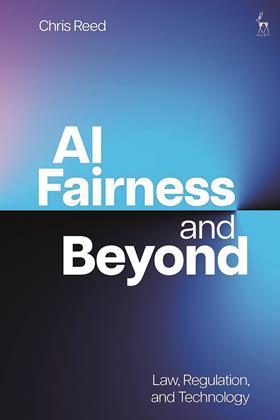AI Fairness and Beyond: Law, Regulation and Technology
Chris Reed
£85, Hart Publishing
★★★✩✩
This book ‘proposes a regulatory system for ensuring that AI makes fair decisions’. Lawyers will immediately raise two questions: first, what constitutes ‘fairness’; and second, what sort of regulation might be effective? Those are knotty issues, and the author, a professor of electronic commercial law, faces them squarely over 200 pages in this solidly produced volume.
He concedes that no lawyers have yet created ‘a convincing definition which incorporates all the constituent elements of fairness’. He surveys familiar legal and political concepts, including ‘outcome’, ‘procedural’ and ‘social’ fairness. Inevitably, some are more precise than others. There is at least broad agreement on the essential features of procedural justice, but ‘outcome’ or ‘social’ justice are both altogether more contentious.
The author then considers machine-learning in AI development. He discusses how merit criteria are set and used in decision-making, and the techniques employed by AI programmers to embed fairness.

Inevitably, however sophisticated an AI might become, the overarching principle remains ‘rubbish in, rubbish out’. Less flippantly, biases in datasets, contested views of ‘fairness’ in every context, algorithmic bias, bias in humans conducting oversight, together with the weaknesses of AI in contextual understanding, all add subjectivity to AI decision-making, however ‘objectively’ its decisions are presented.
Arguably, the most important control or mitigant for AI programming is transparency – the availability of code for scrutiny. Given the vast array of uses of any sophisticated AI system, the study of code might be necessary to reveal programming biases, in addition to repeated experimentation. Intellectual property rights, however, might restrict independent AI analysis in studying a particular AI’s coding.
It may transpire that regulation is not the best method of controlling AI, or at least may be enhanced by additional measures. Normally regulation does not cross boundaries, whereas there is nothing (short of totalitarian internet restrictions) to prevent AI programs from being used across borders. Regulation, at least in the form of primary legislation, also tends to move slowly and reactively. One alternative would be more international standardisation, such as ISO/IEC 42001, potentially accompanied by third-party certification schemes. International standards have the advantage of a potentially greater pool of drafting experts than purely national regulators and, being consensus-based, might gain wider acceptance, albeit they lack an equivalent enforcement mechanism.
Whatever the solution, the author is to be commended on an authoritative contribution to a vital and topical debate.
James Wilson FRHistS is an independent legal author. His most recent book is Lord Denning: Life, Law and Legacy (Wildy, Simmonds & Hill, 2023)































No comments yet